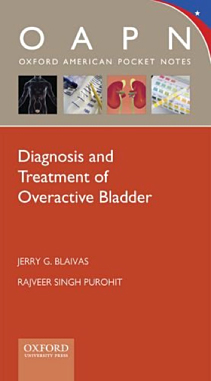BPH and the Prostate
What is the Prostate Gland?
The prostate is a gland present only in men. It secretes fluid that helps liquefy semen and is necessary for reproduction. It sits deep in the pelvis below the bladder and behind the pubic bone. The bladder stores urine and empties itself through a channel (urethra) that runs through the prostate gland and downstream through the penis and out (hopefully!) into the toilet.
What is BPH or an Enlarged Prostate Gland?
As men age, the prostate gland will grow and may begin to block the channel through which the urine flows. It is like a tunnel whose walls gradually began to thicken and grow narrowing the roadway and causing traffic to slow down. However, it is not only the volume of tissue that causes obstruction but there is also increased “muscle tension” within the prostate which “squeezes” the channel and causes urinary symptoms. Because of this, though larger prostate glands typically cause obstruction, prostate size itself does not always predict the severity of urinary symptoms – even small prostates can cause a blockage.
Benign prostatic hyperplasia, or BPH, is a common condition that increasingly affects men as they age.
How common is BPH?
The National Institutes of Health has suggested that up to 75% of men over the age 70 will be affected by this condition. Typically, patients present with gradual worsening of urinary symptoms but occasionally have an acute and dramatic change in their condition such as a complete inability to urinate (urinary retention) or severe pain with urination caused by an infection. BPH is not cancer although occasionally prostate cancer can also cause urinary symptoms.
Does BPH become Prostate Cancer?
No, BPH is a benign condition that can cause many problems but it is not related to prostate cancer. BPH does not develop into prostate cancer. Patients could have both BPH and prostate cancer at the same time but these are unrelated to each other.
What are Symptoms of BPH or an Enlarged Prostate Gland?
Symptoms of BPH typically include both storage and emptying urinary symptoms. Storage symptoms include urinary frequency, urgency, incontinence and waking up to urinate at night. Emptying symptoms include a weak stream, urinary hesitancy (an initial delay in ability to void) and double voiding (urinating twice to empty more completely). Nighttime urination, called nocturia, can be caused by an enlarged prostate gland but frequently has other causes.
In addition to bothersome symptoms, BPH can also cause other acute problems such as urinary tract infections, recurrent episodes of bleeding in the urine and inability to urinate at all (urinary retention). Long-term problems include structural changes in the bladder muscle that will cause it to no longer function normally and permanent kidney damage. Occasionally, men will present with urinary incontinence secondary to BPH if they have a full bladder, or urinary retention, that can no longer hold any further urine and starts to leak, a condition called overflow incontinence.
Why Choose a Uro Center Urologist in New York?
The urologists at the Uro Center in New York are experts in their field, bringing academic and research based innovation to the clinical forefront. Our urology team specializes in areas of treatment such as: robotic surgery, reconstructive urology, men’s health & infertility, kidney stones, urologic oncology, penile implant surgery, urethral stricture, BPH, Urinary incontinence treatment, Mesh complications, Enlarged prostate treatment, Urodynamics, vesicovaginal fistula and female incontinence in New York.
Request an Appointment











